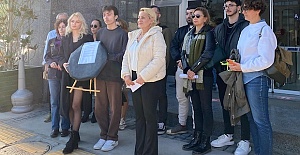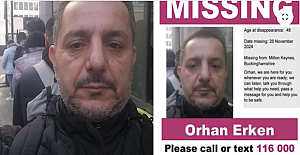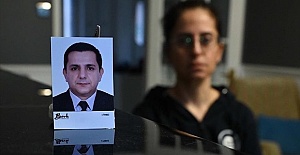By Charles Newbery
BUENOS AIRES, Argentina (AA) – Argentina’s leading labor unions will hold a 24-hour national strike Aug. 28 to put pressure on the government to allow wages to rise in line with double-digit inflation, and to protect employment. “It doesn’t make us feel euphoric to call a strike,” said Hugo Moyano, who runs an anti-government faction of the General Labor Confederation, the country’s largest union umbrella group. Moyano’s remarks were made during a televised press conference late Thursday. He said the unions he represents have been “forced to make this decision” because of a lack of response to their requests from the government. This will be the second strike by unions this year, a sign of how high inflation and recession are fueling social discontent in Latin America’s third-largest economy. The economy is on pace to contract by more than 1.5 percent in 2014, the worst performance since the country emerged in 2003 from a 2001-02 financial crisis. More than one million workers walked off the job during the April 10 strike, grinding to a halt most industries due to a lack of public transport.
Moyano’s unions are already planning a response if the government fails to address their concerns.
“If there are no responses, in September we are going to increase the measures of force,” said Luis Barrionuevo, another head of the striking labor movement. “We have more problems now than during the April strike. We have less money in our pockets and more unemployment and more layoffs.”
Next week’s actions will be the latest in series of work stoppages to highlight discontent with rising inflation, which most private economists say could surpass 40 percent this year after running at about 25 percent since 2010, according to data compiled by opposition lawmakers. Public school teachers held strikes early this year to demand wage hikes of at least 35 percent. Inflation in Argentina is among the world’s highest, according to the Cato Institute, a Washington-based think tank. It puts Argentina’s inflation at 51 percent, among the highest the organization tracks. The administration of President Cristina Fernandez de Kirchner has been trying to contain inflation by capping prices of some products in supermarkets and other retail outlets, and by raising interest rates and cutting the supply of pesos on the market. But with the economy contracting, the government has opted to cut interest rates in a bid to encourage companies to borrow for investment. Economists warn that this strategy runs the risk of pushing up demand as people spend pesos quickly on concerns of future price hikes, in turn raising inflation.
Jorge Capitanich, the president’s chief of staff, downplayed workers’ concerns, saying that the striking unions “don’t represent the majority of workers.” The government wants to keep salary hikes below 3 percent regardless of union pressure. Even so, Capitanich said the government has called a meeting with union and company leaders to discuss salaries Aug. 29, a day after the strike.
Argentine unions call 24-hour strike
22 Ağustos 2014 Cuma 20:45
reads.
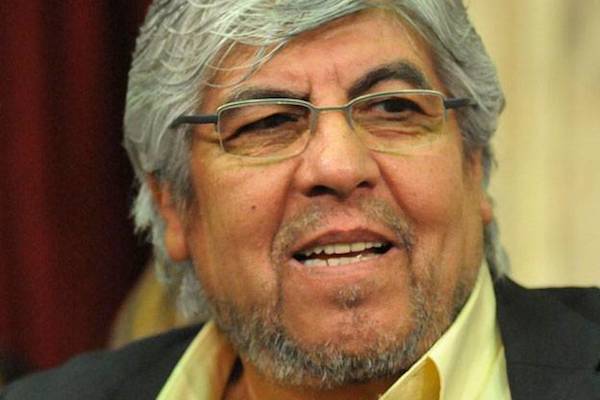


 After Nesil Caliskan a by-election will be held in Jubilee ward in Enfield
After Nesil Caliskan a by-election will be held in Jubilee ward in Enfield Publishing the analysis, Labour’s Cllr Ergin Erbil said Everybody in Enfield deserves basic rights
Publishing the analysis, Labour’s Cllr Ergin Erbil said Everybody in Enfield deserves basic rights Gaza-Israel conflict Statement from Cllr Ergin Erbil, Leader of Enfield Council
Gaza-Israel conflict Statement from Cllr Ergin Erbil, Leader of Enfield Council Cllr Ergin Erbil was elected as the new Leader of Enfield Council
Cllr Ergin Erbil was elected as the new Leader of Enfield Council Alim Karaca, who hosted Bill Gates, Jeff Bezos, Trump, talked about Fethiye
Alim Karaca, who hosted Bill Gates, Jeff Bezos, Trump, talked about Fethiye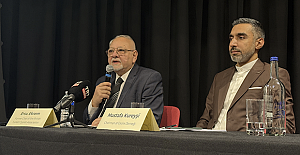 History of the Turkish Cypriot People symposium held in London
History of the Turkish Cypriot People symposium held in London Asia's most famous and powerful 100 women award given to WFPA President Naziya Bisenova
Asia's most famous and powerful 100 women award given to WFPA President Naziya Bisenova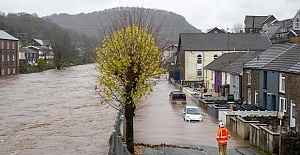 Death toll climbs to 5 as powerful Storm Bert batters Britain
Death toll climbs to 5 as powerful Storm Bert batters Britain Footballers are celebrating after Enfield Council officially opened a pitch
Footballers are celebrating after Enfield Council officially opened a pitch 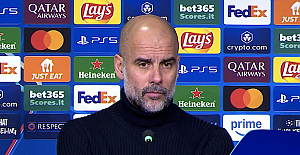 Pep Guardiola's Manchester City beaten by Juventus
Pep Guardiola's Manchester City beaten by Juventus Chelsea to meet Arsenal in Sunday's London derby
Chelsea to meet Arsenal in Sunday's London derby Fenerbahce vs Manchester United Predicted line-ups! Jose Mourinho faces former side
Fenerbahce vs Manchester United Predicted line-ups! Jose Mourinho faces former side UK economy had zero growth between July and September
UK economy had zero growth between July and September Shape the future of housing services with The Enfield 500
Shape the future of housing services with The Enfield 500 DOUBLE-CAB PICKUPS TO BE CLASSED AS CARS UNDER NEW HMRC POLICY
DOUBLE-CAB PICKUPS TO BE CLASSED AS CARS UNDER NEW HMRC POLICY Guide to Selling Hoodies with Imprinted Book Quotes
Guide to Selling Hoodies with Imprinted Book Quotes





